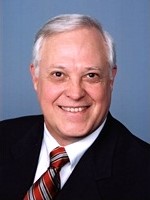Using Trusts to Own Real Estate – Part 2
Posted on July 31, 2013 byOTHER TRUSTS
There are numerous possibilities for the name given to a trust. Such names are often chosen to reflect the primary function of the trust: Education Trust; Wealth Replacement Trust; Charitable Remainder Trust; Spendthrift Dynasty Trust, etc.
Since names are assigned to trusts the public can get the wrong impression. It is often assumed that a named trust is like any other consumer good, such as the name ‘car’ or ‘truck’. A person wants to buy, say, a car but not a truck. They want a Spendthrift, but not an Education Trust. Actually all trusts are just trusts. The primary thing that differentiates them are clauses written into the trusts. For example, a single clause will turn an education trust into a spendthrift education trust.
The point is not to let names become confusing. The fundamentals of trusts are simple to comprehend. First, all trusts are either inter vivos or Testamentary. Inter vivos trusts are set up while the grantor is alive and are often referred to as a ‘living trust’. The testamentary trust, on the other hand, is set up after the person’s death by authority written in the deceased’s will. All trusts will be either an inter vivos or a testamentary trust.
REVOCABLE & IRREVOCABLE TRUSTS
Inter vivos trusts are either revocable or irrevocable. Revocable means the grantor can either revoke the trust or else maintain some significant power to maintain control of the trustee or use of the trust assets. Irrevocable means the grantor totally gives up rights and powers and walks away entrusting to the trustee all of the assets in the trust, referred to as the ‘corpus’.
The government treats most inter vivos revocable trusts as grantor trusts. As previously mentioned, grantor trusts are reported on the grantor’s tax return. Irrevocable trusts have more complex tax returns. in a nut shell, they are either a simple trust or a complex trust for tax reporting purposes. These returns are best prepared by professionals.
Most investors will be dealing with inter vivos or living trusts. Trusts used to hold operational real estate will generally be revocable, grantor trusts. These trusts are more for operational purposes than estate tax planning purposes. In general irrevocable trusts will be used to deal with estate tax planning.
Depending on the client’s objective, the attorney will draft a base trust to emphasize certain objectives, such as children’s education , or a land trust. Examples would be an education trust that is an irrevocable inter vivos trust and the land trust that is a revocable inter vivos trust.
COMMON CHARACTERISTICS
Some common characteristics of the living trust are:
Assignment – In certain cases trusts can be assigned to third parties without changing the public records. Though we do not recommend it, some real estate investors have used this feature in dealing with due on sale clauses of mortgage contracts.
Assurance – The trust may provide greater assurance that the grantor’s wishes will be met. Wills are more easily contested by disgruntled heirs and “want to be” heirs.
Avoids Guardianship of the Assets – Using a Trust the grantor/beneficiary has greater assurance that his assets will be managed in a manner prescribed by him and will be spent as he instructs in the trust document. If a trust does not exist and a guardian is appointed by the courts, then the courts and guardian make these decisions with no input from the incapacitated party. A guardianship is more expensive to administer than a trust since the Court usually requires a periodic accounting by the guardian.
Incapacitation of Trustee – If the owner of the property becomes incapacitated, managing assets can become a problem. A trust allows for an alternate trustee to step into the shoes of an incapacitated trustee without affecting management of the property.
Limited Liability – There is no significant liability protection. At best, the trust provides greater privacy as to who is the beneficiary. In most states living trusts are treated as the alter ego of the grantor. As such, liability may be attributed to the grantor.
Privacy At Death – Ownership transferred upon the death of the grantor/beneficiary of a trust is private when contingent beneficiaries are listed. Unlike a will, which is probated, a trust document does not become public record. Land trusts typically do not have contingent beneficiaries and, therefore, any property held in the trust would simply be included in the deceased’s probated estate.
Privacy While Living – Some real estate investors wisely seek privacy regarding the ownership of their real estate. They do not want their name as the owner of the public property records which would allow anyone to know how much wealth they owned in real estate and where that real estate is located. It can also cause a serious operational problem. For example, a judgment against the investor even for a small amount would give the judgment holder immense leverage diminishing the investor’s opportunity to negotiate a lower settlement on the judgment. The judgment attaches to all of the investor’s real estate. This would prohibit the investor from selling any real estate without first paying the judgment in full.
Probate – Where a trust has contingent beneficiaries listed, costs associated with probate are avoided since the trust is not probated at death.
Taxes (Income) – There is no tax benefit. The tax information is reported on the grantor’s personal tax return.
Taxes (Estate) – The Irrevocable trust, Insurance trust, Bypass trust and Marital Deduction trust are the most common trusts used to save estate taxes. Note that an irrevocable trust is a book trust and can be used for many purposes, such as the trust names indicate, Charitable Remainder Trust and Spendthrift Dynasty Trust. The revocable land trust saves no estate taxes.
